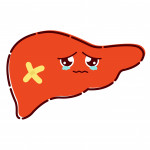- The customer contacts the distributor and supplies documentation like copy of passport, prescription etc. then places his order.
- The distributor then contacts head office (wherever that might be, in this case it was in a city more than a thousand kilometres away) and sends them copies of the documents.
- The head office issues a deliver note to the wholesale warehouse.
- The warehouse contacts the distributor who then contacts the customer to arrange a delivery time.
- A person from the warehouse arrives at the customer’s location with the goods and an invoice/receipt.
- On receiving and checking the goods the customer pays, in cash, the delivery man for the goods and is given a stamped receipt.
Advertisement
Advertisement
It has been a very weird 24 hours and I am relieved to be at the new (and already starting to rust) Chennai International Airport waiting to board Malaysian Airlines flight 183 for home.
The story begins yesterday afternoon, when I attempted to log on to my diary to make an entry. I discovered that I could not access my website. Indeed I could not access any of the several websites that I manage; the passwords had been changed!
Now I should clarify that I have been building and maintaining websites for nearly fifteen years. So it’s not like this blog is the first time I have logged onto a website; and in that fifteen years I have never been locked out of my websites by a password change. Yep I had been hacked.
It took me about four hours of working with my web hosting service to get things right. On my end I had to totally uninstall and remove all software associated with my websites then re-install it all. On their end they enabled me to reset my passwords and usernames. Eventually I regained access to this diary and my other websites.
As I have mentioned a few times I have been receiving and answering a lot of emails from folk with questions about this process I am going through. I guess one of those emails had some sort of Trojan (or whatever they are called).
Anyway it’s all fine now and I will scan all my emails before opening them in future.
Cheers.
At KL Airport
So, as I said, I am now heading home. I think that my visit to India has been a success and when I get home I will go and see my GP and, under his supervision, or some other doctor’s supervision, I will start taking the Myhep (generic sofosbuvir, manufactured by Mylan under licence from GILEAD).
I did consider starting to take it here in India, as I did have the prescription and dosage from the specialist but a couple of people said that there were possibilities of a reaction to either the sofosbuvir or the ribavirin and that it would be wiser to start at home rather than have something bad happen at 10,000 meters above Indonesia.
Buying Prescription Medications in India
At the end of my last day here (yesterday) I decided I was still not really clear enough about how the sales and distribution process works in India so I got my driver to take me to the warehouse of the wholesaler who had delivered the Sovaldi to me the previous day (remember I got one bottle of Sovaldi and two of Myhep). I had a receipt for the cash payment I had made and their address was on it... and it was not too far from my hotel.
So I asked my auto driver if he knew the address and of course he wobbled his head, smiled and said “Oh yes sir, I know it.” But of course he didn’t. Anyway, eventually, after driving around in circles for a while, we found the address and I walked up the stairs to the warehouse.
I was not sure what type of response I would get just walking in like that but the manager came out and, fortunately, was very polite (as most Indians are) and, bonus, he spoke English very well.
I explained to him that I was trying to understand how sales and distribution worked in India for pharmaceuticals and that talking on the phone was not easy for me. He smiled and then gave a very clear explanation. Drawing a distinction between common ’off the shelf’ medications and the expensive stuff like sofosbuvir. He explained that the normal pharmacies could not afford to hold stocks of these expensive medicines so:
Deal done.
Advertisement






